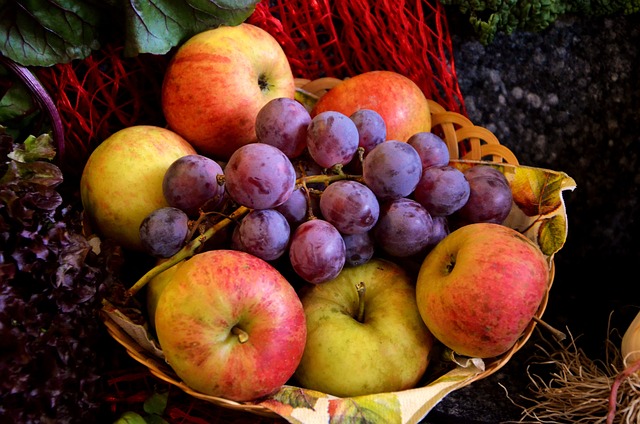Thank you for visiting. We trust that you have enjoyed reading our articles.
Finding Good Fruit In Our Pain

“But He said to me, ‘My grace is sufficient for you, for my power is made perfect in weakness.’ Therefore I will boast all the more gladly about my weaknesses, so that Christ’s power may rest on me. That is why, for Christ’s sake, I delight in weaknesses, in insults, in hardships, in persecutions, in difficulties. For when I am weak, then I am strong” (2 Corinthians 12:9-11 NIV).
Is there anything more difficult to deal with in our human condition than pain? Physical pain can be horrible and so intense that the strongest Christian cries out, “Abba! Father!” to be Healed. Mental pain from the loss of a loved one can crush our spirit. All pain is raw and real.
In our times of pain, it is natural to ask, “Where is God?” I certainly have asked this question before and suspect that I am not alone. The truth is that God shares the pain of every single person. When we are hurting, He isn’t distant. He is aware of our pain. He cares for us during our pain. In my times of pain, I think of how Jesus reacted when He saw the pain and tears on the faces of Mary and Martha because Lazarus had recently died. Jesus, the God of heaven and earth, stopped and cried with them. He embraced their pain and I believe that His Spirit does that today for those that chose to turn toward Him.
Our pain presents us with an opportunity to “yoke up” to God by following the invitation of Matthew 11:28-30. “Come to me, all you who are weary and burdened, and I will give you rest. Take my yoke upon you and learn from me, for I am gentle and humble in heart, and you will find rest for your souls. For my yoke is easy and my burden is light.”
Our pain also presents us with the opportunity to look for someone to blame and seek revenge. Perhaps you were the victim of an accident caused by a drunk driver. The drunk driver may in turn blame the bar tender that over served him or his boss for not respecting him which “caused” him to drive while intoxicated. Sometimes we are an innocent victim, but other times the pain we are experiencing is a direct result of some very poor choices. The most important thing we can ever do is an honest self-examination, but yet the most difficult thing we can ever do is an honest self-examination.
Pain is inevitable in this life. Perhaps pain is God’s way of scratching the surface to reveal what is underneath. I have good friends that have experienced tremendous pain. They have been scratched deep, but they never lost their joy and the Fruits of Spirit were always manifested in their words and actions. I have seen others that when gently scratched, a dark underbelly is revealed that indicates mental instability and/or a poor understanding of Scripture.
I wonder if for some their response to pain is a learned behavior. For example, if a parent modelled for a child that pain requires “an eye for an eye.” They may see pain as an opportunity to play the victim, seek revenge, and engage in character attacks of their perceived offender. So, as an adult maybe they are following the same behavior as modelled to them by their parent(s). Perhaps Numbers 14:18 was written for these situations. “The Lord is slow to anger and abounding in steadfast love, forgiving iniquity and transgression, but he will by no means clear the guilty, visiting the iniquity of the fathers on the children, to the third and the fourth generation” (emphasis added).
Some people are particularly adept to play the victim and solicit sympathy in times of pain. This can be done overtly by public slander and defamation or covertly by “planting seeds of doubt” in an attempt to tarnish the reputation of their perceived offender and to further aid in their effort to win the “battle of public opinion.” These seeds never find fertile ground, never yield good fruit but do speak volumes about the character of the sower.
Jesus experienced pain so we have confidence that when we pray in our times of pain that He understands our pain. Hebrews 4:15 says: “Jesus understands every weakness of ours, because he was tempted in every way that we are.”
He understands emotional pain, abandonment, loneliness, criticism, discrimination, rejection, and betrayal. Jesus also understands physical pain. Can you imagine not only the pain of the crucifixion but also carrying the sin of every evil act done throughout history? It is important to remember that in His pain and without sin He descended into hell but His victory over sin and death allows us to be presented as pure and blameless to the Father.
The Holy Spirit also shares our pain. When our pain is so great that all we can speak are groans, the Spirit intercedes on our behalf. Romans 8:26 reads, “In the same way, the Spirit helps us in our weakness. We do not know what we ought to pray for, but the Spirit himself intercedes for us through wordless groans.”
God shares our pain because He created us. The Bible says, “The one who formed their hearts understands everything they do” (Psalm 33:15). In other words, God is never shocked by your emotions or your thoughts.
There are many Psalms that begin in a similar fashion as Psalm 130:1. “Lord, I cry out to you out of the depths of my despair!” He not only welcomes our cries of pain, but He understands and offers comfort, if we plant our seeds on fertile ground rather than sowing seeds of doubt. If you are in pain, remember Psalm 34:18: “The LORD is near to the brokenhearted and saves the crushed in spirit.”
You’re never closer to God than when you have a broken heart. This is the time to plant seeds in accordance with Matthew 13:23. “But the seed falling on good soil refers to someone who hears the word and understands it. This is the one who produces a crop, yielding a hundred, sixty or thirty times what was sown.” What sort of seeds will you plant during your pain? Choose wisely because future generations are watching and your actions can have implications for three and four generations.
Prayer: Dear God, Thank you for the invitation to share our pain. Help us to turn to you in times of pain and to plant seeds that bring honor and glory to you. Help us to resist the temptation of the flesh to plant seeds of doubt and seek revenge. Amen.
Meet the Author
Todd Shupe is a Men’s Ministry Specialist through the General Commission of United Methodist Men and is in training to be a Certified Lay Minister through the Louisiana Conference of the United Methodist Church. He currently serves as the President of the Baton Rouge District of United Methodist Men and is a Board Member for Gulf South Men and serves on the Action Team for The Kingdom Group. He is a volunteer for the Walk to Emmaus, Grace Camp, and Iron Sharpens Iron. Todd resides in Baton Rouge, Louisiana.
We welcome your comments below.
Liked this post?
Read more below or search for more topics...
-
Read Scripture And Then Use It
Read Scripture And Then Use It “Everyone who hears these words of mine and puts them into practice is like a wise man who built his house on the rock” (Matthew 7:24 NIV). I enjoy reading the Bible, and I if you are reading this you probably do as well. I also enjoy group Bible studies, Sunday School, small groups and any other means of studying and learning Scripture. I study Scripture because I want to learn more about God. I know “All Scripture is God-breathed and is useful for teaching, rebuking, correcting and training in righteousness so that the servant of God may be... -
Self-Control Can Vanquish Weakness In Trying Times
Self-Control Can Vanquish Weakness In Trying Times "A fool always loses his temper, But a wise man holds it back" (Proverbs 29:11 NASB). The Bible teaches us that self-control is essential to living a Christian life. We must exercise our self-control or we become controlled by our weakness. Whether it is food, alcohol, drugs or pornography, the enemy knows our weakness better than we do and will encourage us to go to it rather than to God in times of need. Our lives can soon be dominated by our weakness and we are living completely in the flesh rather than in the... -
Loneliness Can Lead to Ministry
Loneliness Can Lead to Ministry “It is not good for the man to be alone” (Genesis 2:18 NIV).We were all made to live in community. How can we “encourage one another and build each other up” (1 Thessalonians 5:11) if we are isolated from others? Loneliness is not just a problem for older adults. Younger adults that are single parents or divorced may experience loneliness when the children move out of the house. Some have ridiculed the lonely and called them weak. This is wrong and cruel. It is wrong because most of society has confused weakness with meekness. Jesus was...



